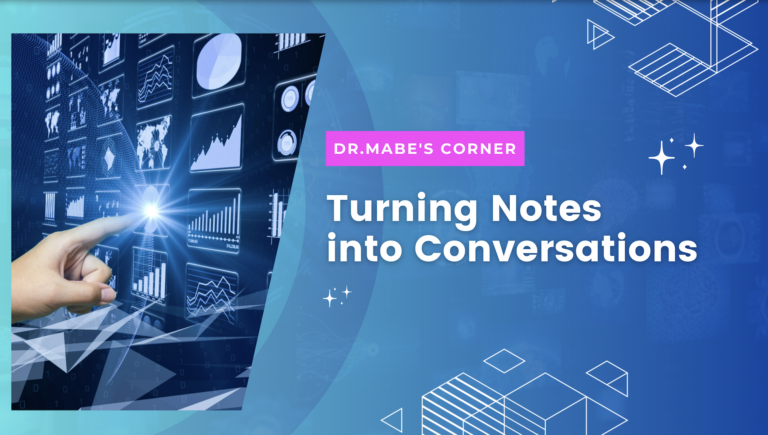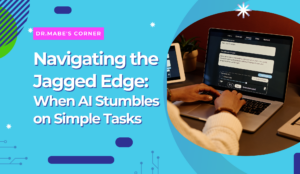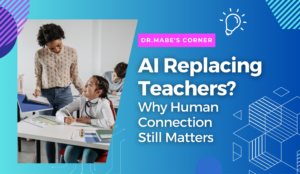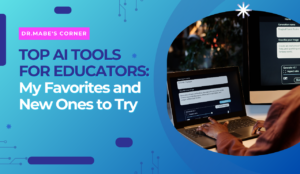Just when I thought I had been normalized to new AI things, I heard a story on NPR that managed to blow my mind. They were talking about a new tool from Google called Notebook.lm. In the story, they talked about how you can turn anything into a podcast. They played a clip and at first I thought it was two people talking about the new tool, but then realized: No, these two ARE the AI voices.
Of course, the second I had a chance, I had to look it up and play with it myself. To test it out, I chose 3 very dense academic scholarly articles on climate change. It actually took a good 5-8 minutes, but it created a podcast synthesizing the articles for me in the witty conversation style of two seasoned podcasters! Don’t take my word for it, you can check it out here.
I was so amazed by it, I had to show everyone who would listen. A colleague said, okay, let me see how far I can push it. He tried to upload his entire textbook, but there is a word limit. He was able to upload a chapter and it gave him a very helpful rundown of the information.
However, creating the podcasts is not the only thing it can do. Google calls it your “Personalized AI Research Assistant.” For whatever text or group of texts you upload into a notebook, it can give you a summary, FAQ sheet, study guide, Table of Contents, Timeline and Briefing Doc. Not only that, but you can ask questions about the documents. For example:
ME: What is the potential for climate change to drive mass extinction events?
Notebook.LM: The sources discuss the potential for climate change to drive mass extinction events. Historically, climate change has played a role in the collapse of numerous societies and in each of the five mass extinction events in Earth’s history. The current rate of climate change is unprecedented in geological history. By the end of the century, it’s possible we will surpass thresholds that triggered previous mass extinctions. The speed of the current carbon pulse could surpass thresholds that triggered previous mass extinction events.
- Worst-case scenarios in the IPCC report project that temperatures by the 22nd century will be as hot as they were in the Early Eocene period, which would effectively reverse 50 million years of cooler climates in just two centuries.
- Research indicates that previous mass extinction events happened because of threshold effects in the carbon cycle that could be crossed this century.
- Key impacts in previous mass extinctions, like ocean hypoxia and anoxia, could also increase in the long term.
Notebook.lm just recently moved from beta to experimental, so now it is free for everyone. I am sure teachers, and students, will find innovative ways to use it for teaching and learning. AI for Education shared a review of the new tool that includes a demo. If you’re interested in checking it out, you can find it here. They offer some ideas for how it can be used in education. These include:
- “Creating study guides, FAQs, table of contents, briefing docs, and timelines on research papers, curriculum, and other sources
- Generating podcast-like conversations to reinforce important content
- Help for students studying or researchers synthesizing information from multiple sources”
It is also important to remember, this is the worst version of this that will ever exist. As of right now, for the podcast feature, you are not able to change the two voices. I can see in the future being able to make the voice sound like any voice you have a sample recording of. It’s exciting…and scary.





